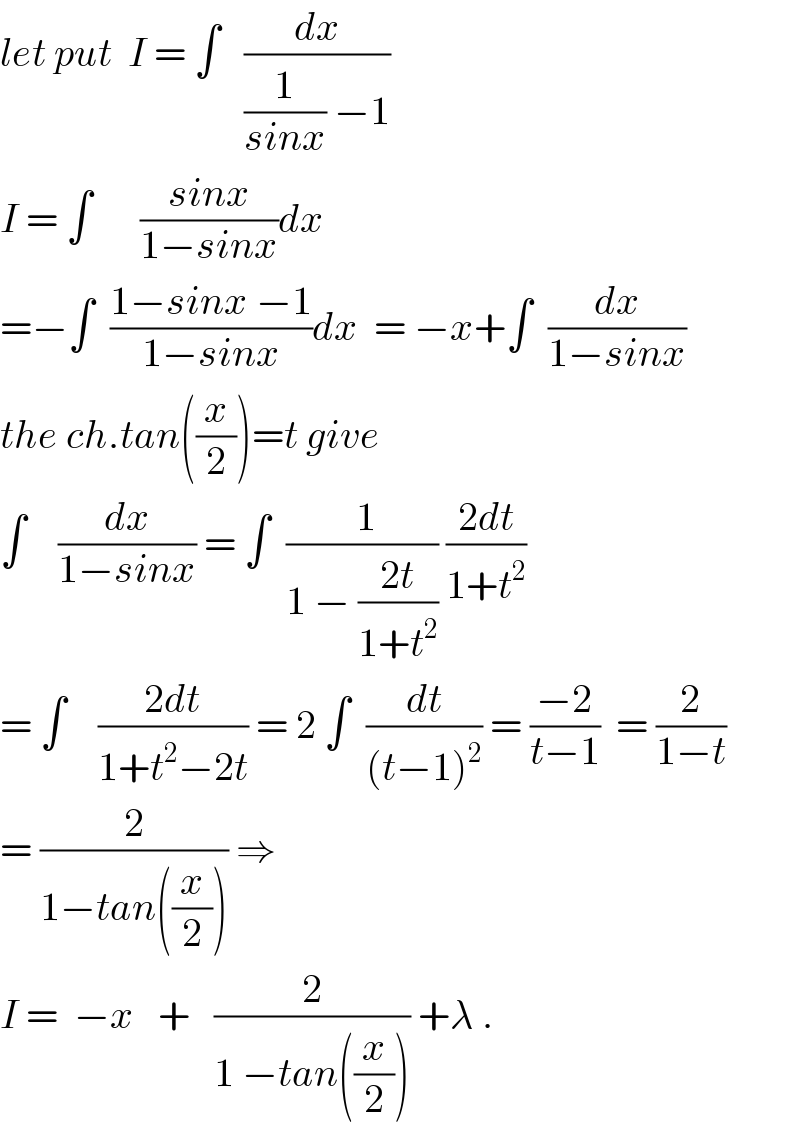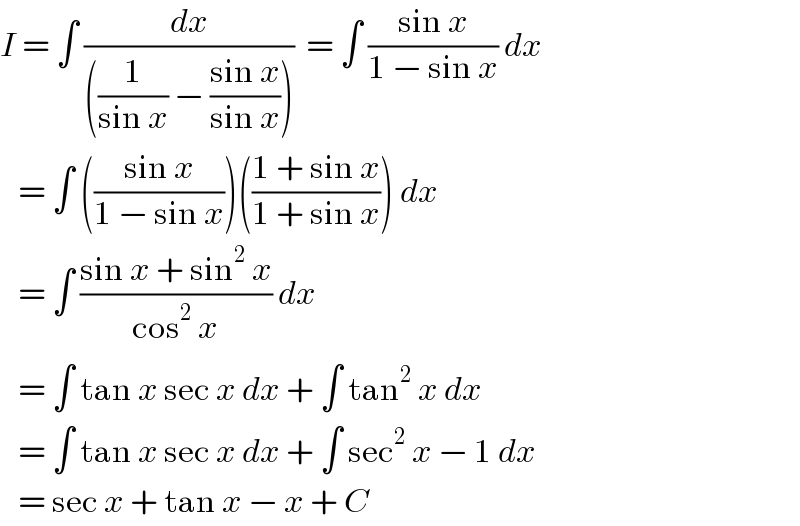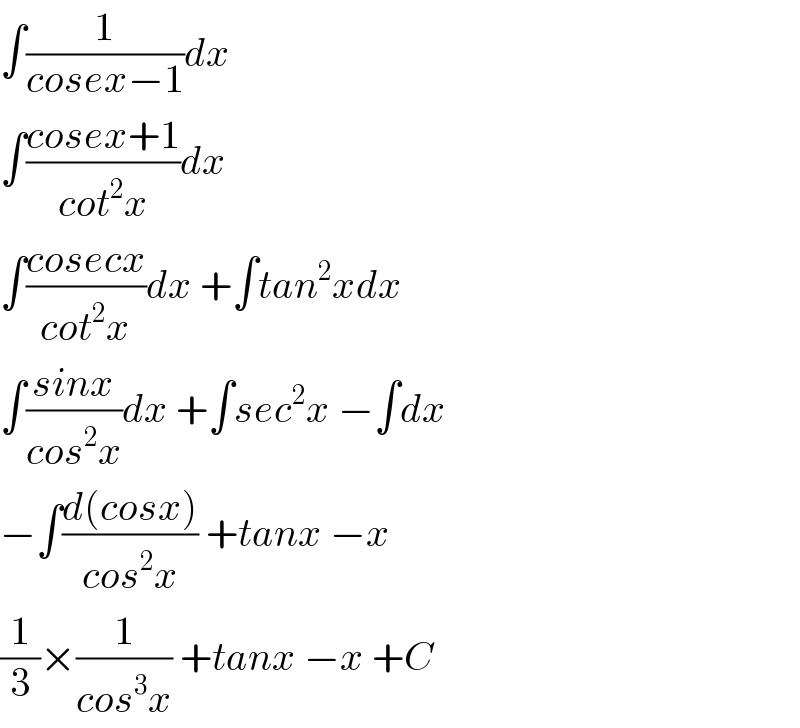
Question and Answers Forum
Question Number 33009 by kyle_TW last updated on 09/Apr/18
![help ! ! ! ∫ (dx/(csc(x)−1)) = ? [ my way ] ∫( (dx/((1/(sinx)) − 1)) ) =∫((sinx)/(1−sinx)) dx =−∫ ((sinx−1+1)/(sinx−1)) dx =−∫1+(1/(sinx−1)) dx =−(∫1dx+∫((sinx+1)/((sinx−1)(sinx+1))) dx) =−(x+C−∫((sinx+1)/(1−sin^2 x)) dx) =−(x+C−∫ ((sinx)/(cos^2 x)) dx−∫ (1/(cos^2 x)) dx) =−(x+C+∫(cosx)^(−2) dcosx−∫(1/(cos^2 x))dx) =−(x−(cosx)^(−1) +C−∫(1/(cos^2 x))dx) ...and I can′t solve the ∫(1/(cos^2 x))dx oh i just found that is tanx+C](Q33009.png)
Commented by prof Abdo imad last updated on 09/Apr/18

Answered by Joel578 last updated on 09/Apr/18

Commented by kyle_TW last updated on 09/Apr/18

Commented by kyle_TW last updated on 09/Apr/18

Answered by math1967 last updated on 09/Apr/18

